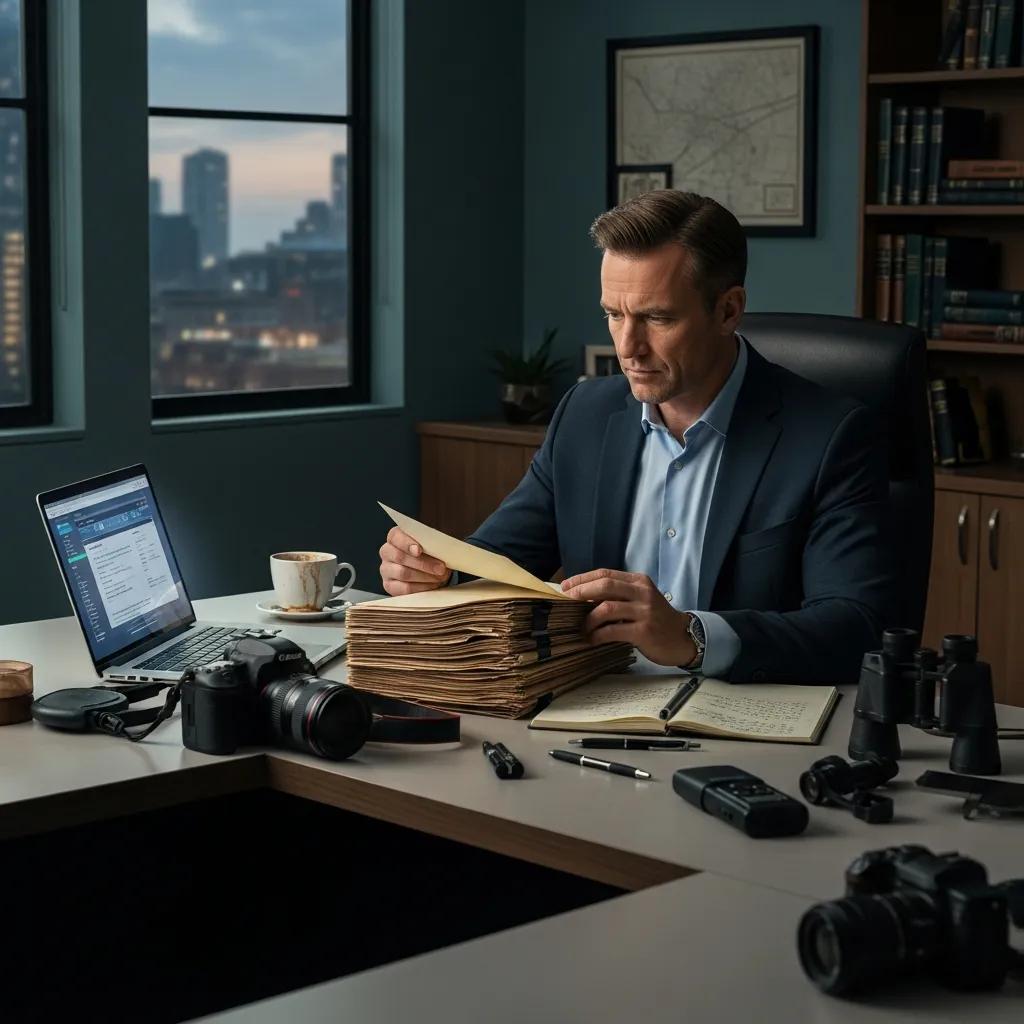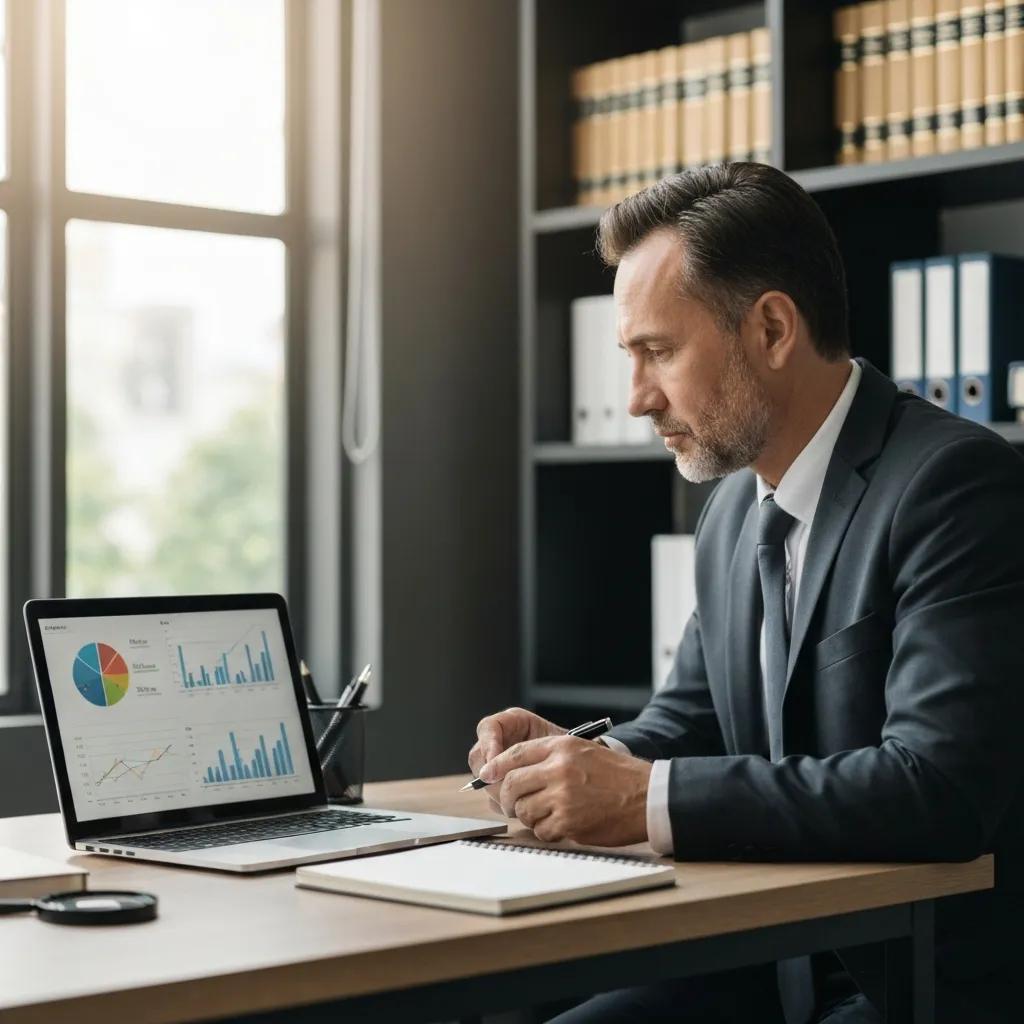In the high-stakes world of legal battles, having solid evidence can make or break a case. That’s where litigation support investigations come in. Private investigators play a crucial role in assisting attorneys by uncovering key facts, locating witnesses, verifying claims, and gathering documentation that strengthens legal arguments. From civil lawsuits to complex corporate disputes, these professionals work behind the scenes to ensure lawyers are equipped with the accurate, timely information they need. In this article, we’ll explore how private investigators support the legal process and why their expertise can be a game-changer in the courtroom.
Why Smart Legal Teams Rely on Litigation Support Investigations
The Evolution of Private Investigators in Legal Support

Private investigators are often imagined as trench coat-clad figures lurking in the shadows, but that image doesn’t match the reality of today’s legal world. Over the years, the role of private investigators has shifted from basic surveillance to becoming a vital part of modern litigation support. These professionals now contribute to legal cases with skills that go far beyond simply following someone or snapping photos.
In the past, law firms might have handled investigations internally or used freelance help for background checks and witness interviews. That model no longer works in a legal landscape shaped by digital data, strict privacy laws, and complex cases. Today’s private investigators are trained in areas like digital forensics, cybersecurity, and financial analysis. Many firms now rely on teams of experts who work together to uncover key details that lawyers can use in court.
The shift has been driven by both need and opportunity. With more personal and business information stored online, legal teams require investigators who understand how to access, interpret, and protect digital records. Whether tracking financial transactions, recovering deleted files, or analyzing social media activity, modern investigators use advanced tools to find facts that matter.
It’s also about quality. A good investigator doesn’t just collect data; they understand how that data fits into the bigger picture. They know how to follow legal procedures when gathering evidence, which helps make sure the findings are admissible in court. They can also testify as expert witnesses, helping to explain complicated information in a way that judges and juries can understand.
Attorneys now recognize that hiring a skilled investigator can strengthen a case early on. When investigators are brought in at the beginning of a legal matter, they can identify red flags, uncover hidden assets, or locate hard-to-find witnesses. This early support often leads to better outcomes and can even prevent cases from dragging out unnecessarily.
In short, private investigators have become much more than behind-the-scenes helpers. They are now essential partners in building strong legal strategies. Their work brings clarity to complex situations and provides attorneys with the facts they need to make informed decisions in and out of the courtroom.
The Role of Private Investigators in Building Strong Legal Cases
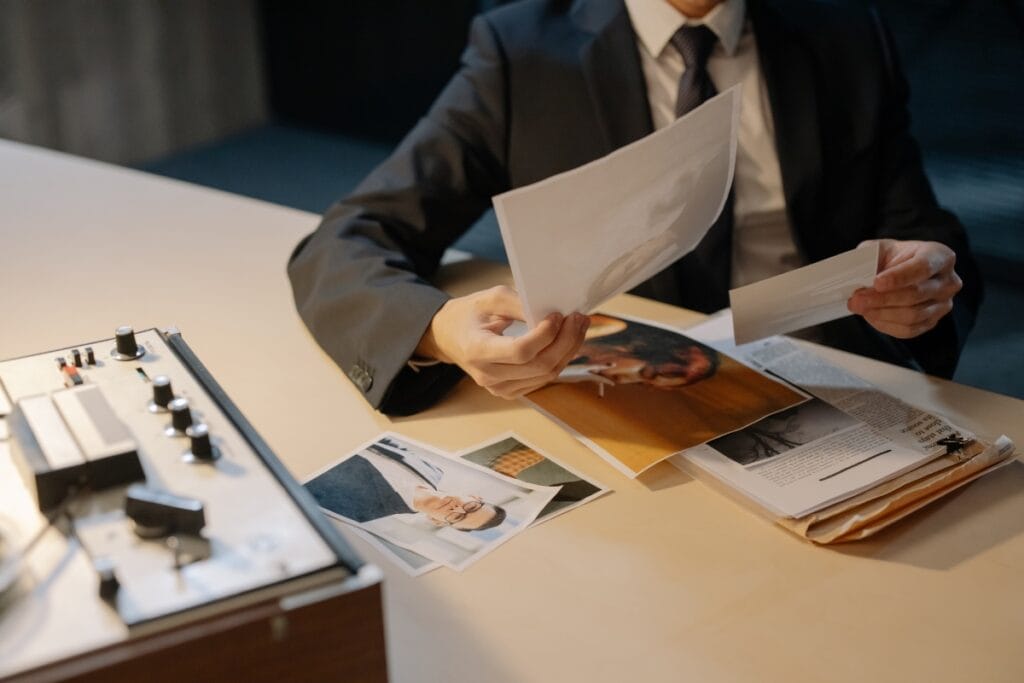
Strong legal cases are built on more than persuasive arguments. Attorneys need solid evidence, reliable witnesses, and a clear understanding of every angle. That’s where private investigators come in. Their role is to dig deeper than standard discovery methods, often uncovering details that can shape the outcome of a case.
Private investigators are especially helpful in the early stages of a case, before it even goes to court. They can track down witnesses who may have moved or changed contact information, confirm or challenge alibis, and create accurate timelines of events. This groundwork helps lawyers decide whether to settle or proceed and what risks they might face in court. By doing the legwork early, investigators allow legal teams to go into negotiations or trial better prepared.
Their support continues throughout the case. Investigators can research opposing parties, expert witnesses, and even judges. They look for potential conflicts of interest, past testimony, or public statements that may affect the outcome. For example, if a key witness has a history of contradicting themselves or ties to one of the parties involved, that information can shape how attorneys handle cross-examination or challenge credibility.
Private investigators also help verify the accuracy of information presented during depositions or in court filings. They can confirm or refute claims through surveillance, interviews, or document reviews. When lawyers use verified facts rather than assumptions, their arguments hold up better under scrutiny.
In some cases, investigators even help attorneys spot weaknesses in the opposing side’s story. A thorough background check may reveal motives, connections, or prior conduct that sheds light on the truth. All of this information becomes part of the legal strategy.
When used correctly, private investigators are not just fact finders. They are valuable contributors to a well-organized legal plan. Their detailed reports, paired with documented evidence, support stronger motions, depositions, and arguments. Judges and juries often respond more favorably to cases that show clear attention to detail and preparation.
In short, private investigators help legal teams build stronger, more defensible cases by filling in the gaps that standard legal research might miss. Their work can be the difference between a good case and a great one.
Uncovering Hidden Truths Through Surveillance Techniques
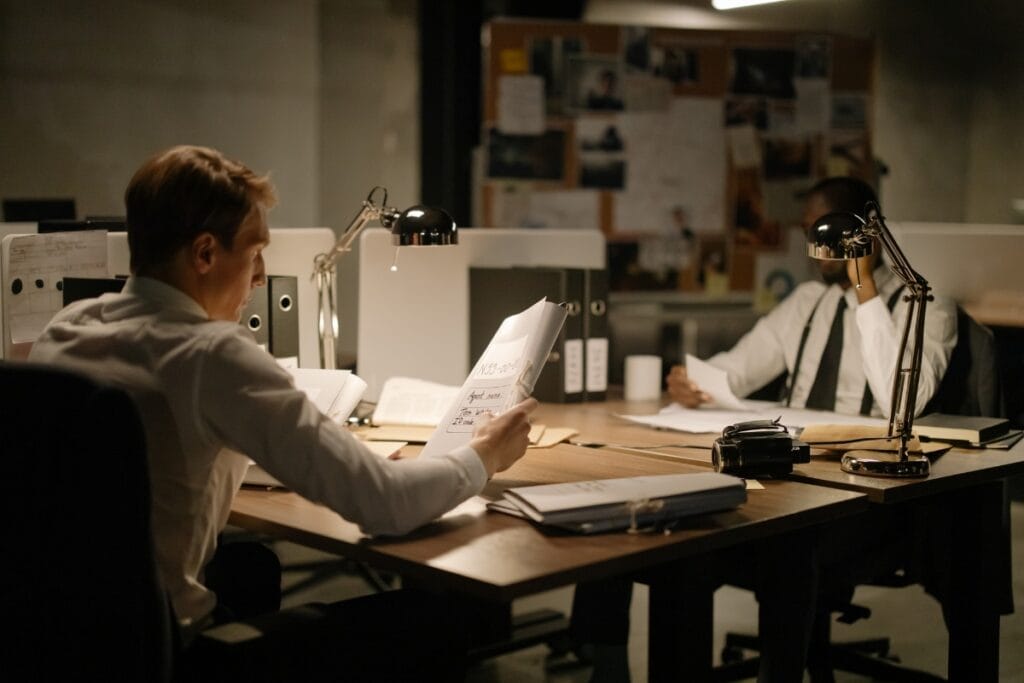
Surveillance is one of the most practical tools private investigators use to support legal cases. While many people picture an investigator parked in a car with a camera, modern surveillance involves a much wider range of techniques. Depending on the case, it may include discreet video monitoring, GPS tracking, or the use of motion-activated cameras placed in public areas. These methods help document behavior and verify claims in ways that are clear and difficult to dispute.
Private investigators are often brought in when something doesn’t add up. Maybe someone filing a personal injury claim is suspected of exaggerating their injuries. Or perhaps a business partner is believed to be engaging in side deals that violate a contract. In either case, surveillance can provide a direct look at what’s really going on. The visual proof—whether it’s a video clip, a photo, or a timestamped log—can be used in court to challenge false claims or back up a client’s version of events.
But surveillance is not just about gathering footage. It must be done legally and carefully. Every state has laws about what can and can’t be recorded, where surveillance is allowed, and how the information can be used in court. A professional investigator understands these boundaries and builds a surveillance plan that respects privacy laws while still capturing what’s needed for the case. Cutting corners can result in evidence being thrown out or even legal trouble for the hiring party, which is why experience matters.
When done right, the results of surveillance can play a critical role in building a case. Investigators deliver detailed reports, often supported by video or photographic evidence, that attorneys can use during depositions or trials. This kind of documentation helps turn guesswork into facts. Instead of relying on speculation, a legal team can point to clear, time-stamped records of behavior that support their argument.
In short, surveillance is not just about watching—it’s about documenting the truth in a way that holds up in court. For attorneys handling complex or contested cases, working with a skilled private investigator ensures that nothing important goes unnoticed.
Gathering Crucial Evidence for Court Proceedings

In any legal case, solid evidence often makes the difference between winning and losing. That’s why private investigators play such a valuable role in litigation support. Their job is to dig deep and uncover facts that attorneys can use to build a strong case. Whether it’s finding a document buried in company records or tracking down a witness who moved out of state, investigators are trained to find details others might miss.
Evidence collection isn’t just about gathering information. It has to be done the right way. Private investigators follow strict procedures to make sure everything they find is legally obtained and clearly documented. This includes keeping a detailed chain of custody for physical evidence and logging the time, location, and method of each discovery. These steps are crucial. If something isn’t collected properly, it may not be allowed in court.
Investigators also help with tasks like serving subpoenas, inspecting properties, and conducting structured interviews with witnesses. These actions can reveal patterns, clarify timelines, or challenge the accuracy of opposing claims. The information collected through interviews and inspections is usually backed up by written reports, photographs, or video, giving attorneys reliable material to work with during trial prep.
In many cases, private investigators team up with experts in fields like forensics, accounting, or digital security. For example, a PI might gather financial records and then work with a forensic accountant to trace hidden assets. Or they might help a digital analyst recover deleted emails relevant to a contract dispute. These collaborations produce a well-rounded view of the case and give attorneys more than just one angle to work from.
All of this work comes together to support motions, courtroom presentations, and even settlement negotiations. Strong evidence does more than tell a story—it shows facts in a way that judges and juries can trust. For law firms, having access to a skilled investigator means fewer loose ends and more confidence heading into court.
At the end of the day, private investigators are there to uncover the truth and make sure that truth stands up under legal scrutiny. Their behind-the-scenes work is often what gives a legal case the edge it needs.
Providing Strategic Insight and Analysis for Attorneys

Private investigators do more than gather facts—they help attorneys make smarter decisions during the legal process. By digging deep into the details of a case, PIs often uncover patterns, motives, and risks that may not be obvious at first glance. Their work isn’t just about collecting information, but about organizing it in a way that makes sense and supports legal strategy.
One of the key tools they provide is the investigative report. These reports bring together everything from surveillance logs and public records to interview notes and timelines. Rather than handing over a pile of documents, PIs turn that data into clear summaries and key takeaways. This helps attorneys quickly see what’s important, where the red flags are, and how they might want to approach a case—whether they’re preparing for trial, negotiating a settlement, or filing motions.
Private investigators also weigh in on the quality of evidence and the trustworthiness of sources. Is that witness reliable? Is there enough proof to support a claim? If something doesn’t hold up, the PI can point it out before it becomes a bigger issue in court. They might also suggest other paths to explore—like tracking down a missing witness or looking into a business’s financial records.
Another important role they play is helping attorneys think a few steps ahead. PIs often have experience identifying how opposing counsel might argue their case or which pieces of evidence could be used against their client. With that foresight, they can help lawyers refine their strategies and avoid getting caught off guard.
In many ways, a private investigator becomes a behind-the-scenes partner in the legal process. They’re not just working in the background—they’re actively helping to build stronger arguments and uncover weaknesses in the other side’s case. Their insights often lead to better-prepared attorneys, stronger courtroom performances, and more favorable outcomes for clients.
Leveraging Private Investigators’ Expertise in Research
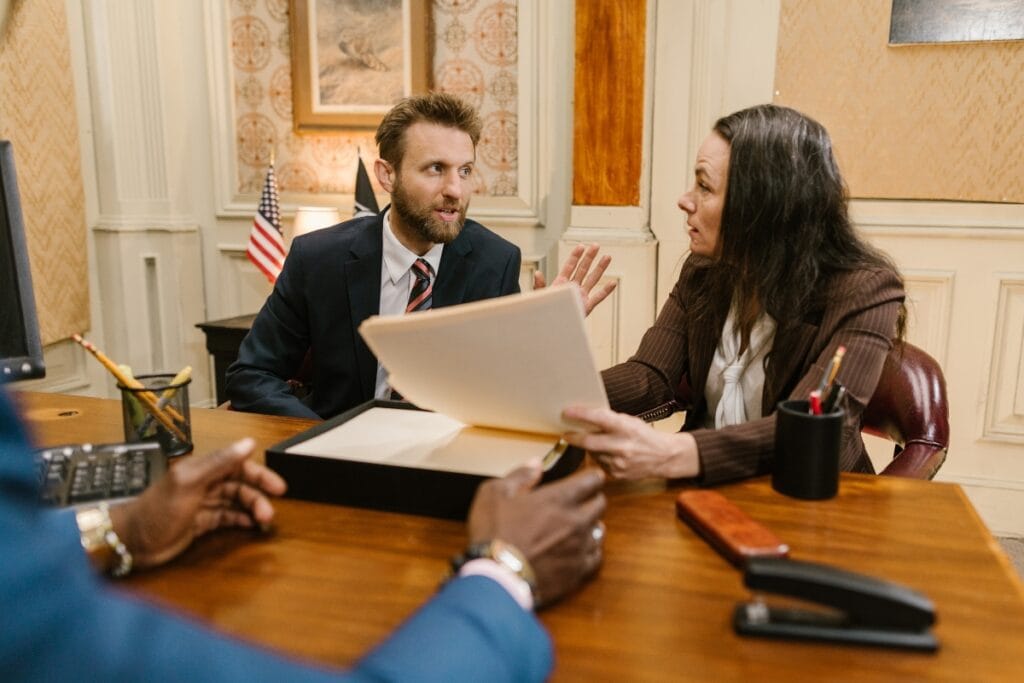
Solid research is at the heart of any strong legal case. Private investigators play a key role in digging up information that can support or even shift the direction of a case. Unlike a basic online search, their research dives deep into sources that aren’t always easy to access, such as archived government records, restricted databases, court filings, or foreign documents. They also know how to pull relevant details from social media, corporate websites, and hard-to-navigate public records.
In litigation support, this kind of detailed research can uncover valuable facts that attorneys might miss. Investigators often find connections between people, businesses, or past events that don’t show up in standard legal discovery. These connections might point to undisclosed assets, shell companies, prior lawsuits, or other facts that add weight to a client’s position or expose problems in the opposing case.
Private investigators also bring a technical edge to their research. Many use software tools that can sort through large volumes of data quickly, helping them spot inconsistencies, patterns, or red flags. This might include identifying fake names tied to the same address or tracking financial trails that suggest fraud or misrepresentation. These findings are typically presented in a clean, organized way so attorneys can use them without needing to decode complicated spreadsheets or raw data dumps.
Their work is especially useful in cases involving business disputes, family law, or asset recovery, where tracking down details and verifying claims is essential. For example, in divorce proceedings, a PI might uncover hidden property or financial holdings that impact the division of assets. In commercial litigation, they might identify conflicts of interest or misrepresented business relationships.
By taking on the research burden, private investigators free up attorneys to focus on strategy and legal arguments. Their ability to gather, verify, and interpret complex information adds a layer of support that’s hard to match with legal staff alone.
Enhancing Cross-Examinations with Investigative Reports

Cross-examinations can make or break a case. They require sharp focus, solid facts, and the ability to catch inconsistencies in real time. Private investigators play a key role in helping attorneys prepare for this critical stage of trial. Through detailed investigative reports, they provide information that strengthens a lawyer’s ability to ask the right questions and challenge witness credibility.
One of the main ways investigators contribute is by identifying discrepancies across statements. They review depositions, interviews, written statements, and even social media posts to spot contradictions or changes in a witness’s story. These inconsistencies may seem small on their own, but when presented effectively in court, they can cast doubt on a witness’s reliability.
Investigators also take note of behavioral details during interviews—hesitations, vague responses, or over-specific answers—which may indicate uncertainty or deception. This level of detail helps attorneys anticipate how a witness might respond under pressure and develop more pointed questions.
In many cases, investigators include visual materials in their reports to help organize and present the facts clearly. Timelines, annotated photos, and maps can show where people were, what happened when, and how different elements of the case connect. These tools are especially useful in court, where quick understanding is crucial. A timeline showing that a witness couldn’t have been in two places at once, for example, is far more compelling than a spoken argument alone.
Attorneys who have access to this type of organized, well-researched support are often better positioned to challenge weak testimony. Instead of relying solely on instinct or memory, they can walk into court with a clear plan, backed by facts that have been checked and double-checked by professionals.
In the end, private investigators don’t just help attorneys prepare—they help them prepare with precision. Their reports offer structure, insight, and clarity, allowing lawyers to lead stronger cross-examinations and stay one step ahead during critical moments in trial. It’s not just about finding flaws in a witness’s story. It’s about making sure the truth is front and center when it matters most.
Navigating Settlement Negotiations with Investigative Findings

Most legal disputes don’t go all the way to trial. Instead, many are resolved through settlement negotiations. Private investigators play an important behind-the-scenes role in helping attorneys reach strong, fair outcomes during these discussions. Their job is to uncover solid facts and details that give legal teams the upper hand when it comes time to negotiate.
During settlement talks, information is power. Investigators often provide findings that change the way a case is viewed. For example, uncovering proof of misconduct, locating hidden assets, or confirming key witness statements can shift the balance and apply pressure where it’s needed. Attorneys can use this kind of evidence to justify higher demand amounts or hold firm against lowball offers. It gives them a strong foundation for arguing their case, even outside the courtroom.
Investigative reports also help legal teams better understand the full picture. If there are weaknesses in a client’s case, a good PI will flag them early. This lets attorneys prepare for tough questions and decide whether settling is a smarter move than risking trial. On the other hand, if new evidence strengthens a client’s position, that can lead to more confident and assertive negotiation.
Private investigators may also assist by putting together practical cost-benefit assessments. These reports can compare the potential costs of trial—legal fees, time, and risks—with the benefits of settling now. This kind of analysis is especially helpful when clients need clear, fact-based guidance to make tough decisions.
In high-stakes cases, emotions and assumptions can cloud judgment. Investigative findings help cut through that by providing facts, what really happened, who was involved, and what the risks are moving forward. With reliable information in hand, attorneys can walk into the negotiation room prepared, confident, and ready to argue from a position of strength.
Conclusion: The Impact of Private Investigators on Legal Battles
Effective litigation often hinges on uncovering the crucial facts that strengthen a case, and seasoned private investigators play a vital role in gathering evidence, conducting interviews, and providing actionable intelligence for attorneys. By partnering with 4Horsemen Investigation & Security, legal teams can gain access to specialized private investigation resources and expertise that can make all the difference in complex disputes. Call us at 404-680-0860 or visit our website to request a free consultation, and let our investigation professionals support your pursuit of justice.

